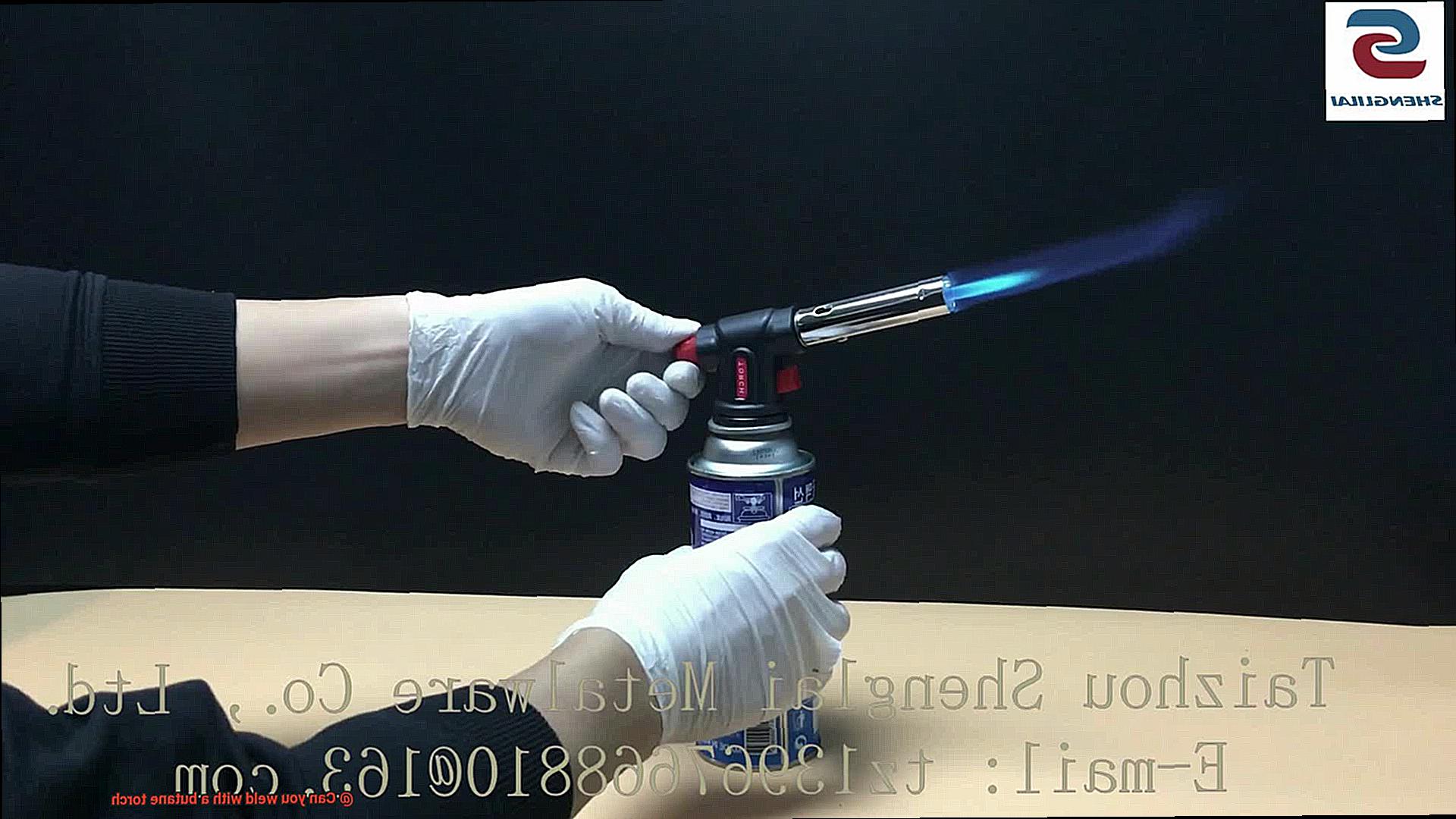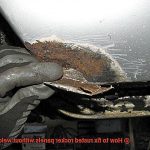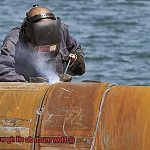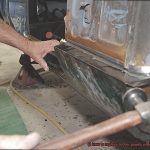Welding is a complex art that involves fusing different metals together using heat.
Gas welding, one of the most popular methods, employs various gases to create a flame that melts metals. But what about welding with a butane torch?
This question has piqued the curiosity of many welding enthusiasts, and the answer is not as simple as yes or no. In this article, we’ll delve into the science behind welding with a butane torch and weigh up its pros and cons.
We’ll also examine some of the challenges you may encounter when using this technique and offer tips on how to achieve successful results. Whether you’re an experienced welder or just starting out, this article will provide valuable insights into the world of welding with a butane torch.
So, let’s start now.
What is Welding?
Contents
Welding is the incredible process of joining two or more metals by melting and fusing them together using heat and pressure.
It’s an essential process used in various industries, including construction, automotive, and manufacturing. However, did you know that there are several different types of welding techniques?
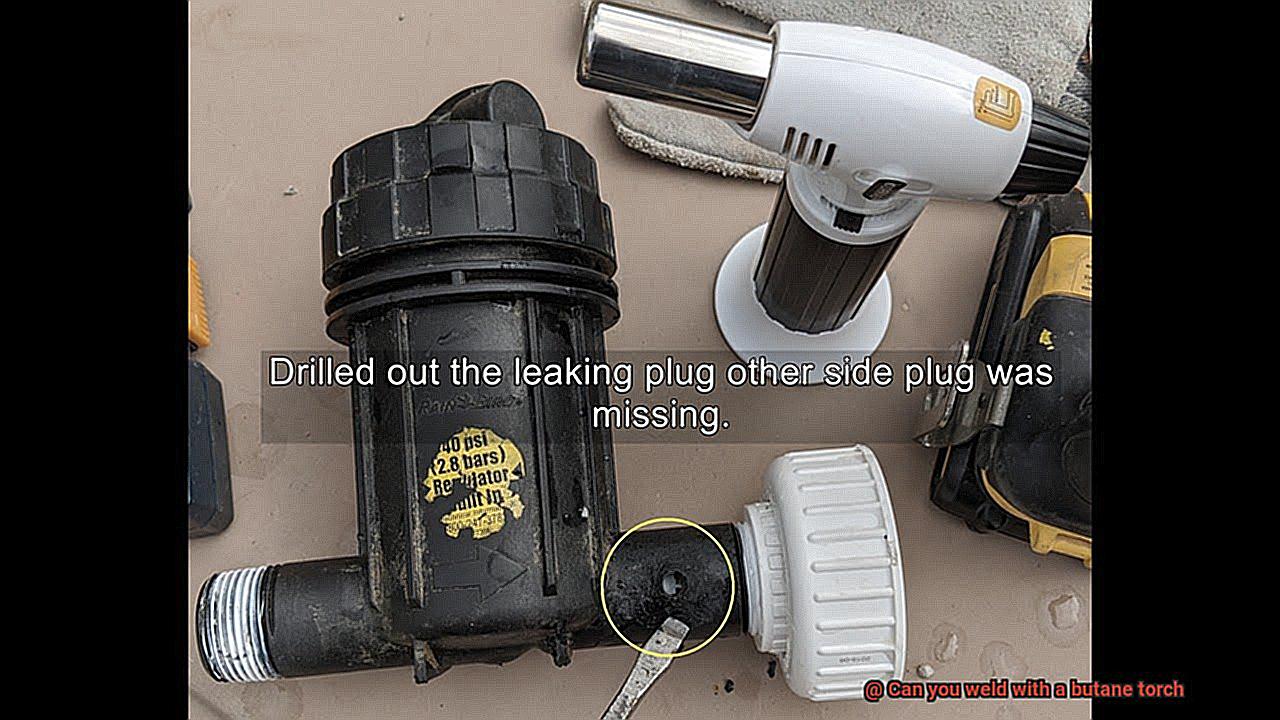
MIG welding, also known as Gas Metal Arc Welding (GMAW), is the most common type of welding. This method uses a wire feed to deliver the filler material and a shielding gas to protect the weld.
MIG welding is fast, efficient, and can be used on a variety of metals. It’s perfect for indoor projects but requires a constant supply of electricity, making it unsuitable for outdoor use.
TIG welding, or Gas Tungsten Arc Welding (GTAW), is another popular method that produces high-quality welds. It uses a tungsten electrode to generate the heat needed for the weld, and a separate filler material is added as needed.
TIG welding is often used for welding thin materials like aluminum or stainless steel. It’s slower than other methods, but the results are worth it.
Stick welding, or Shielded Metal Arc Welding (SMAW), uses a consumable electrode that melts as it is used to create the weld. It’s a versatile method that can be used in difficult-to-reach areas but requires more skill than other methods.
Stick welding is often used in construction and maintenance applications. Flux-cored welding is similar to MIG welding but does not require a shielding gas.
Instead, the flux in the wire creates a protective shield around the weld. This method can be used in outdoor applications and produces high-quality welds.
So, each type of welding has its unique advantages and disadvantages. MIG welding is fast and efficient; TIG welding produces high-quality welds; stick welding is versatile, and flux-cored welding can be used in outdoor applications.
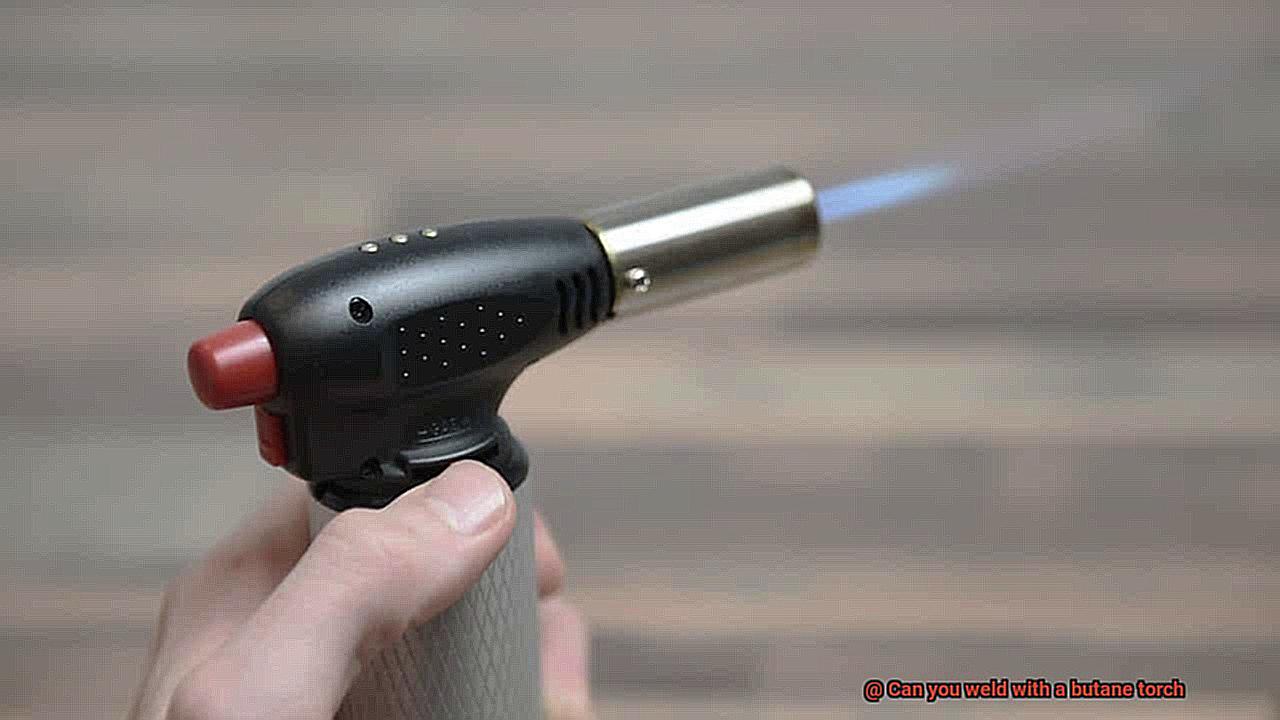
However, all types of welding require specialized equipment and safety precautions to ensure safe and effective results. While butane torches can be useful for small-scale soldering or brazing tasks, they are not suitable for welding.
Can You Weld with a Butane Torch?
Welding is a magical process that bonds metals together using heat and pressure. But, have you ever wondered if you can weld with a butane torch?
Yes, you can weld with a butane torch, but it may not be the most efficient or effective method. Butane torches are typically used for smaller tasks like soldering and brazing due to their lower heat levels.
Although welding with a butane torch is possible, it will require a lot of time and effort due to the torch’s low heat output. Welding with a butane torch involves focusing the flame on one spot for an extended period to heat the metal enough to join it together.
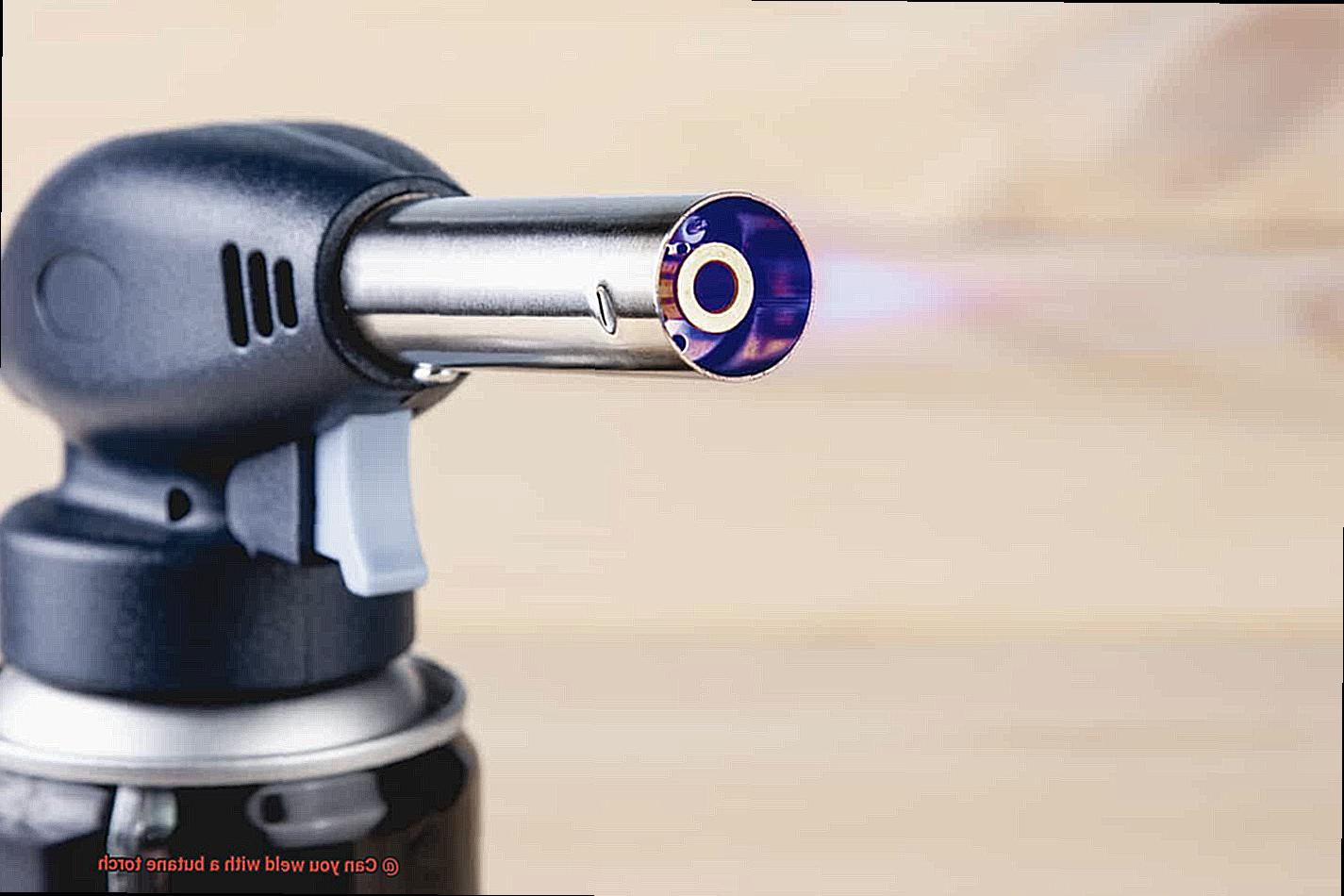
This process can be slow and tedious, especially for larger projects. Moreover, the resulting weld may not be as strong as those made with higher heat welding methods such as MIG or TIG welding.
Therefore, if you are looking to do any serious welding work, I recommend investing in specialized equipment designed specifically for welding purposes such as a propane torch or MIG/TIG welder. These tools have higher heat outputs than butane torches and can create strong and high-quality welds efficiently.
In that case, with some patience and effort, it is possible to use a butane torch for welding.
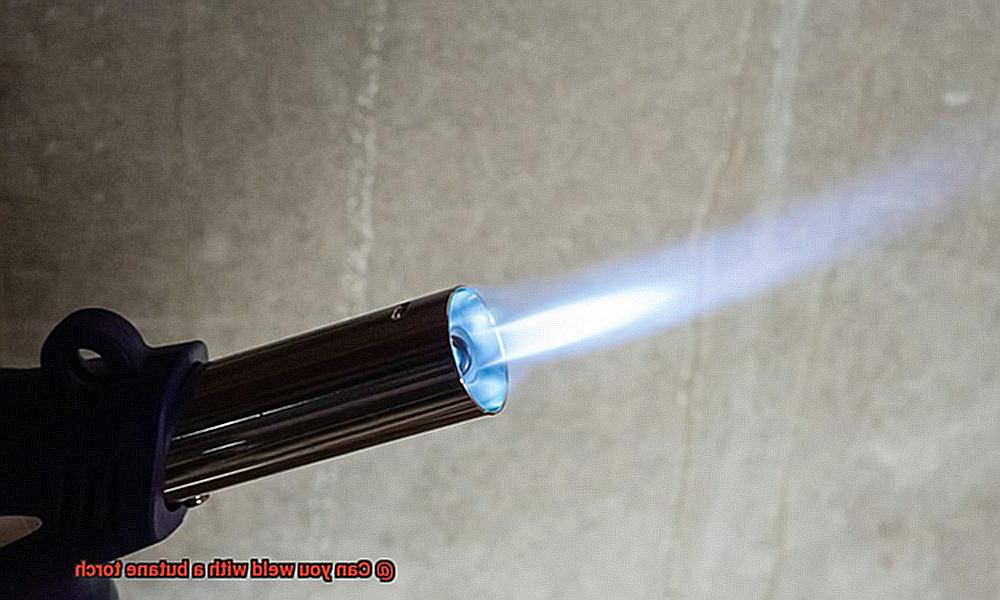
Advantages and Disadvantages of Using a Butane Torch for Welding
Before you make any decisions, let’s take a closer look at the advantages and disadvantages of using a butane torch for welding. Advantages:
First off, the portability of butane torches is unmatched. They are small and lightweight, making them easy to carry around and use in different locations.
This feature makes them an excellent option for those who need to do welding on the go, such as outdoor welding or welding in remote locations. Another advantage of using a butane torch is affordability.
Compared to other types of welding equipment, butane torches are relatively inexpensive. They are perfect for hobbyists or those who only need to do occasional welding without breaking the bank.
Butane torches are also incredibly easy to use. They require little setup time and come with a trigger ignition that makes lighting the torch quick and effortless.
This simplicity makes them an excellent option for beginners who are new to welding. Finally, butane torches allow for precise control over the heat output.
This is essential when working with delicate or small pieces of metal, as it allows you to avoid overheating and damaging the material. The precision control also makes it easier to weld intricate designs or patterns.
Disadvantages: However, there are some disadvantages to using a butane torch for welding.
One of the most significant drawbacks is limited power. Butane torches have limited power when it comes to welding thicker metals.
They may not be the best option for heavy-duty welding projects, such as construction or industrial applications. Another disadvantage is limited burn time.
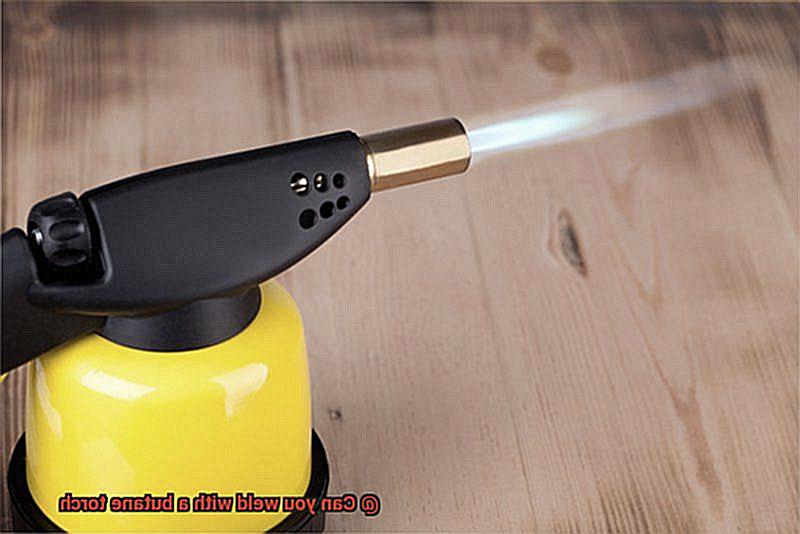
The burn time for butane torches is relatively short, which means that they may not be suitable for extended welding sessions. This limitation can be frustrating when working on larger projects that require longer periods of time to complete.
Butane torches also have a limited temperature range, which may make it challenging to weld certain materials. This limitation can be particularly frustrating when working with materials that require higher temperatures than what a butane torch can provide.
If you plan on doing these types of welding projects, you may need to invest in more powerful equipment.
Alternatives to Butane Torches for Welding
While butane torches are a common choice due to their affordability and portability, they may not always be the best option for the job.
Luckily, there are several alternatives to butane torches that can help you achieve your desired results. One of the most popular alternatives is the propane torch.
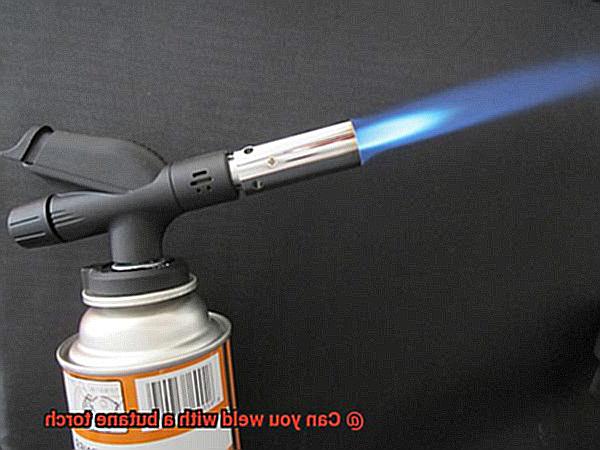
Like butane torches, propane torches are handheld and portable, but they use propane gas as fuel. With higher temperatures than butane torches, propane torches can handle thicker metals or jobs that require more heat.
If you need even more heat, an oxy-acetylene torch is worth considering. This type of torch uses a mix of oxygen and acetylene gas to create a flame that can reach temperatures up to 6,000 degrees Fahrenheit.
The precise control over heat makes oxy-acetylene torches ideal for welding thick metals. For those who prefer an electric option, electric arc welders may be the answer.
These welders use electricity to create an arc between a metal electrode and the workpiece, melting the metal and fusing it together. Electric arc welders come in different sizes and types, from small handheld units to large industrial machines.
Each alternative has its own unique benefits that should be weighed before making your final decision.
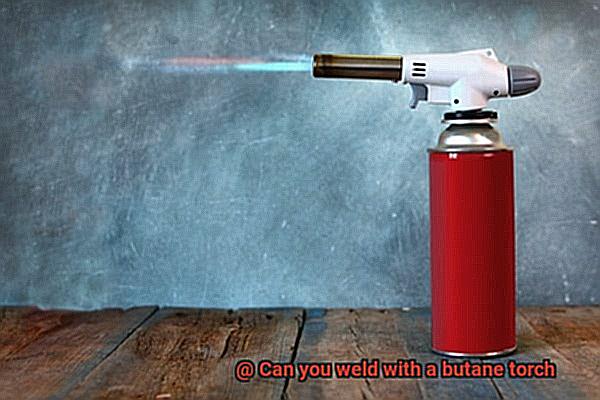
Safety Considerations When Using a Butane Torch for Welding
Welding with a butane torch can be an exciting and practical skill, but safety should always be a top priority.
A butane torch’s intense heat and flames can be hazardous if not used correctly, resulting in severe injuries or even fatalities. Therefore, it is crucial to take the necessary safety precautions when using one.
The first safety consideration is to ensure that the area you plan to use the butane torch is free from any flammable materials or substances. Keep any paper, cloth, or chemicals away from your workspace.
It’s like a campfire – keep your distance from anything that could catch fire. Protective gear is essential when working with a butane torch.
Wear gloves and goggles to shield your hands and eyes from hot debris and sparks that may fly during welding. It may seem unfashionable, but wearing protective gear is an excellent way to prevent injuries.
Before starting your welding project, check your butane torch’s condition. Ensure that the fuel level is adequate and inspect the nozzle and valve for any leaks or damages.
It’s best to fix any problems before igniting the torch to avoid accidents. Lastly, always read the manufacturer’s instructions carefully before using your butane torch.
The instructions provide guidance on how to use the torch safely and effectively while avoiding potential hazards. In conclusion, welding with a butane torch is safe if proper safety measures are taken.
LTwTsJZ4CbU” >
Conclusion
In conclusion, welding with a butane torch is technically possible, but it may not be the most efficient or effective method for larger projects.
Butane torches are typically used for smaller tasks like soldering and brazing due to their lower heat levels. Welding with a butane torch requires focusing the flame on one spot for an extended period, which can be slow and tedious.
Additionally, the resulting weld may not be as strong as those made with higher heat welding methods such as MIG or TIG welding. While butane torches have some advantages such as portability and affordability, they also have limitations such as limited power and burn time.
Therefore, if you want to do any serious welding work, it’s essential to use specialized equipment designed specifically for welding purposes such as a propane torch or MIG/TIG welder. No matter which tool you choose for your welding project, safety should always be a top priority.
By taking necessary safety precautions when using a butane torch or any other welding equipment, you can ensure safe and effective results while avoiding potential hazards.
